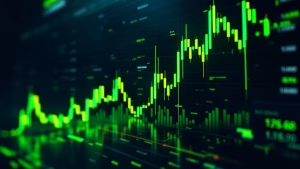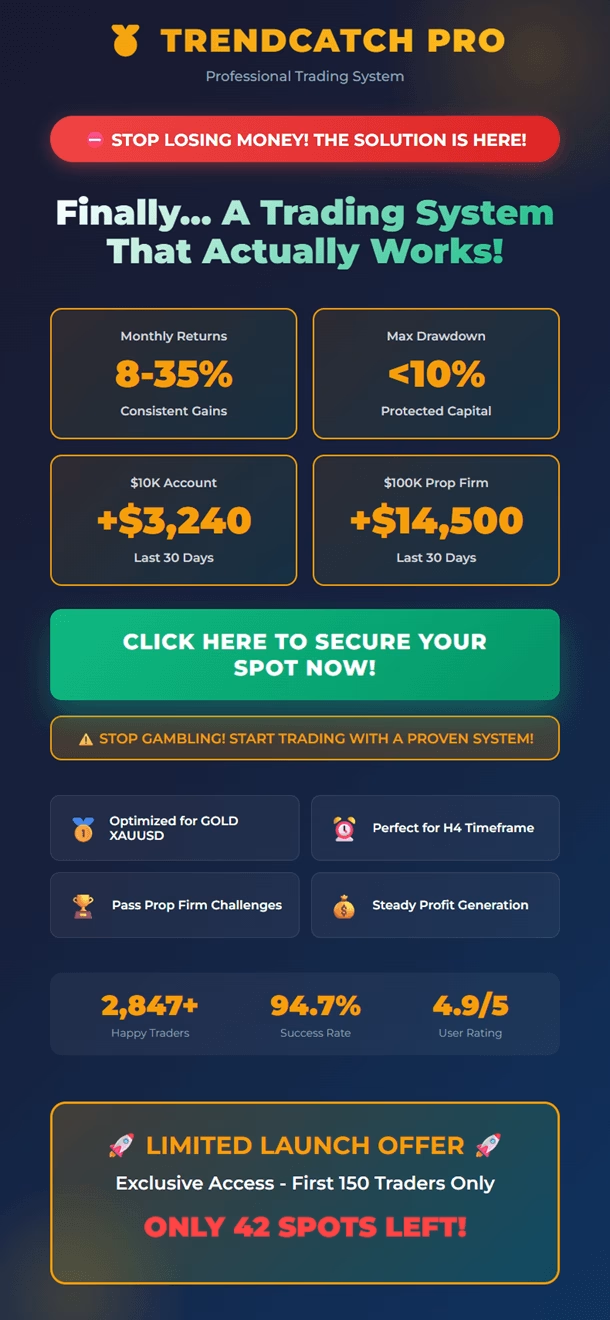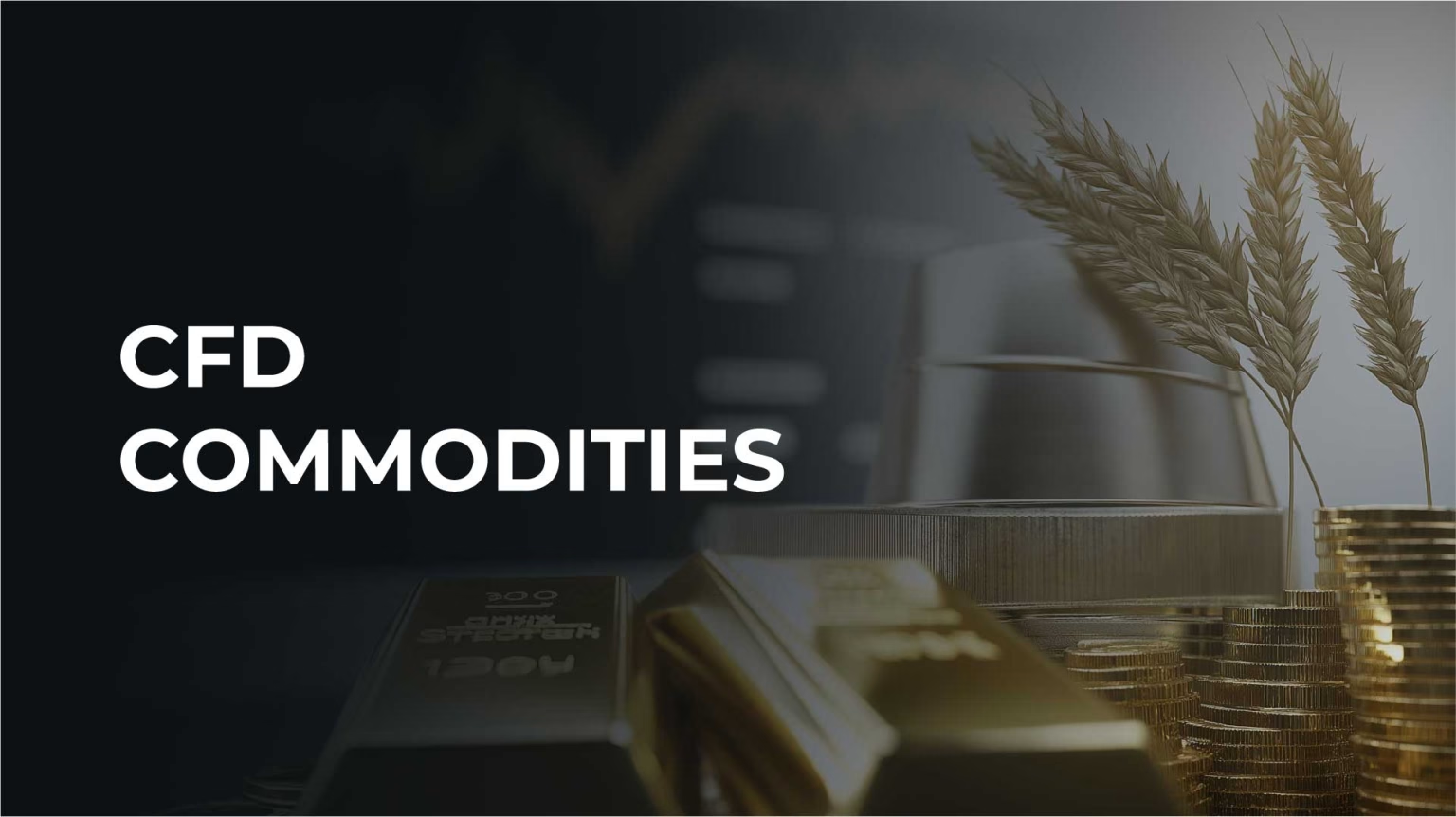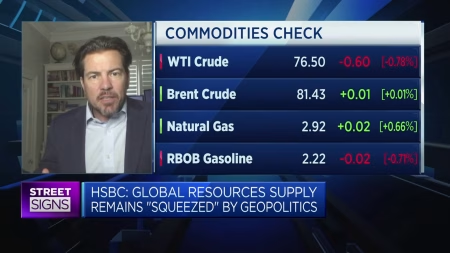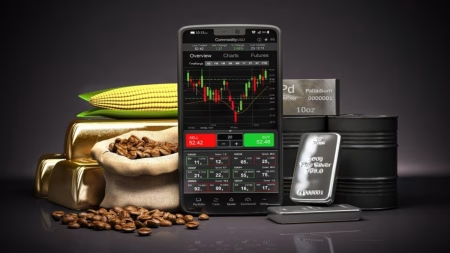
Commodities Accounts
Commodities Accounts, In the dynamic world of commodity markets, one of the foundational building blocks for any trader or investor is a commodities account. Whether you are a retail trader looking to gain exposure to oil, gold, wheat or other raw materials — or a hedge-fund professional managing large physical flows — the term commodities accounts is vital. In this article we’ll explain what commodities accounts are, why they matter, how they differ from securities or deposit accounts, how you open and manage one, and the risks and opportunities that come with them. If you’re using our website, TradingMarketSignals, as your trading information hub, this guide will help you make sense of commodity-accounting and trading fundamentals.

What Are Commodities?
Before diving into accounts, it’s good to revisit what “commodities” means in the financial and trading world. According to the Corporate Finance Institute, commodities are raw materials or basic goods produced in bulk and largely interchangeable with one another:
“Products that come from the earth and are used as raw materials for other manufacturing activities.” (Corporate Finance Institute)
These can include agricultural goods (like wheat, soybeans), energy (oil, natural gas), and metals (gold, copper). (Wall Street Prep)
Because commodities are traded on exchanges and have standard grades and quantities, they serve as underlying assets for futures, options and other derivative instruments. (Investopedia)
Whether you’re thinking of “soft commodities” (agriculture) or “hard commodities” (metals/energy), the key is that the asset is raw material, often fungible, and subject to supply/demand dynamics rather than company earnings. (Investopedia)

Defining “Commodities Accounts”
Now, let’s define the core term: commodities accounts (sometimes called “commodity account” in singular). Legally and practically, a commodities account is an account set up with a broker or clearing firm for the purpose of trading commodity interests (futures, options on futures, swaps, etc). For example, according to one legal-resource definition:
“A commodity account is a type of financial account used by customers to trade commodity interests”. (legal-resources.uslegalforms.com)
In contractual and collateral documentation, you will also see the term “Commodity Accounts” defined to include all such accounts held by a grantor/trader. (lawinsider.com)
In other words: when you want to engage in commodity trading (not just owning physical goods), you typically open a commodities account — separate from your ordinary securities brokerage or bank deposit account.
Why Commodities Accounts Matter
Why should a trader or investor care about commodities accounts? There are several reasons:
- Specialised Regulation & Clearing: Commodity trading (especially futures) often falls under regulatory bodies like the Commodity Futures Trading Commission (CFTC) in the United States, and requires specific account structures. If your trading is not properly set up you may suffer from regulatory mis-classification or lack of protections. For instance, the legal definition emphasises “trading commodity interests” and compliance. (legal-resources.uslegalforms.com)
- Risk & Leverage Differences: Commodity accounts often permit margin/leverage, futures contracts, delivery obligations or cash-settled derivatives. These involve risks (price volatility, roll-over costs, contango/backwardation) different from typical equity accounts. Recognising that you are using a commodity account helps you manage those risks.
- Portfolio Diversification: Many investors include commodity exposure for diversification or inflation-hedging. Since commodities often do not move in perfect correlation with equities or bonds, having a properly structured commodity account can help. (Investopedia)
- Access to Physical Delivery or Derivatives: Through commodity accounts you may gain access to futures or options markets, physical delivery (depending on the contract) or hedging mechanisms that are not available via standard brokerage. Understanding the account structure ensures you can execute your strategy.
- Accounting, Tax and Reporting Implications: Commodity accounts may have different tax treatment, accounting disclosures and reporting requirements compared to standard securities accounts. If you manage these accounts properly you avoid surprises in audit, tax or regulatory review.
Given these points, it’s clear that opening and managing a commodity account is more than simply having a brokerage login — it’s a strategic decision requiring awareness of structure, regulation, and obligations.
Types of Commodities Accounts
When we talk about commodities accounts, there are several variants and considerations. Understanding the different types helps you pick the right one for your goals.
Retail Commodity Trading Accounts
These are accounts offered by brokers to individual investors/traders who wish to trade commodity futures or options on futures. The account is set up for “commodity interests” rather than regular equities.
Institutional Commodity Accounts
Large funds or companies may use commodity accounts as part of hedging operations (e.g., producers hedging crop price or oil companies hedging crude). These accounts are higher-volume and may involve physical delivery obligations or large hedge positions.
Managed Futures / Pooled Commodity Accounts
In some cases, an investor participates in a pooled account (or fund) that trades commodities on behalf of many investors. These may be structured as a pooled commodity account or commodity pool. For example, a “managed futures account” is one such variant. (Wikipedia)
Specialised Accounts (Hedging / Physical Delivery)
Some commodity accounts are designed to handle physical delivery obligations (for instance, a farmer hedging wheat futures) rather than purely speculative trades. In such cases, the account may interface with logistics, storage certificates, delivery invoices, etc.
How to Open a Commodities Account
Opening a commodities account involves several steps and considerations. Here’s a practical walkthrough:
- Choose a Qualified Broker / Futures Commission Merchant (FCM)
- Make sure the broker is registered with the relevant regulatory body (for example, in the U.S., the CFTC/NFA).
- Ensure they offer commodity futures, options on futures or other commodity-based derivative products.
- Check their margin requirements, trading platform, clearing relationships.
- Submit Application & Documentation
- You’ll submit a commodities-account application form — this may differ from standard securities accounts.
- Provide identity verification, financial information, trading experience, risk-disclosure acknowledgment.
- The broker may ask you to sign a commodity account control agreement or similar legal form. (lawinsider.com)
- Deposit Funds / Meet Margin Requirements
- Commodity futures trading generally requires margin. The funding may involve a deposit of cash or other collateral.
- Understand initial margin, maintenance margin, and potential margin calls.
- Understand the Contract Specifications
- Before placing trades, review contract size, expiration, settlement type (physical vs cash), deliverable grades, etc.
- As noted earlier, commodities are interchangeable but specific grades apply. (Investopedia)
- Set Up Risk Controls and Strategy
- Decide your trading strategy (hedge, speculation, spread, calendar roll, etc).
- Set stop-loss levels, maximum exposure, time horizon.
- Compliance & Reporting
- Ensure you understand regulatory obligations: for example, in the U.S., the Commodity Exchange Act governs these accounts. (legal-resources.uslegalforms.com)
- Keep accurate records of trades, fees, delivery instructions if applicable.
- Execute & Monitor Trades
- Once set up, you trade under the commodity account structure. Monitor market conditions, margin calls, roll-overs, and liquidity.
Key Features & Components of Commodities Accounts
A deep dive into what you should expect inside a commodities account:
Margin and Leverage
Commodity futures often involve margin — you only need to deposit a fraction of the contract’s value but you remain fully exposed to price movement. Margin calls can occur if the market moves adversely.
Delivery vs Cash Settlement
Some commodity contracts involve actual physical delivery of the underlying (e.g., barrels of oil, bushels of wheat) unless offset by closing position. Others settle in cash. If you hold a commodity account you must know whether you accept delivery or must roll the contract before expiry.
Contract Expiry and Roll-Over
Futures expire. If you wish to maintain exposure beyond expiry, you’ll need to roll the contract (close current/enter next). This may involve cost (carry cost, contango/backwardation). This is central to commodity account renewal strategy.
Credit & Financing Considerations
Commodity accounts may involve borrowing (financing) or credit exposure. Especially when dealing with large volumes or physical delivery, financing or structured trade finance comes into play. (academy.iccwbo.org)
Fees, Commissions & Clearing Costs
The broker/FCM will charge trading commissions, exchange fees, clearing house fees. Also, see the cost of roll-over if you hold long-term.
Collateral & Account Control Agreements
In institutional settings especially, you may sign a commodity account control agreement (CACA) to give the clearing firm clearer rights. The legal definitions highlight such agreements. (lawinsider.com)
Differences Between Commodities Accounts vs Securities or Deposit Accounts
It’s helpful to contrast commodity accounts with more familiar accounts:
| Feature | Securities Account | Commodities Account |
|---|---|---|
| Underlying Instrument | Stocks, bonds, ETFs | Commodity futures, options, swaps |
| Delivery Obligation | Rarely involves physical delivery (except bonds) | Some contracts involve physical delivery or specific grading |
| Leverage / Margin | Varies by broker, typically regulated by margin on equities | Often higher leverage, futures margin rules |
| Regulatory Framework | Securities regulated (e.g., SEC in US) | Commodity accounts regulated by CFTC/NFA (US) or equivalent |
| Cost & Roll-Over | Holding long term may involve dividends, custody | Roll-over cost, contango/backwardation, storage/transport may apply |
| Risk Profile | Linked to company fundamentals + market risk | Linked to supply/demand of raw materials, global macro factors |
| Account Documentation | Standard brokerage account forms | Specialized commodity account forms, agreements, collateral control |
Knowing these differences helps traders choose the right structure. If you read our other article on “securities account vs futures account” at TradingMarketSignals, you’ll find further details.
Benefits & Opportunities of Using Commodities Accounts
If used wisely, commodities accounts offer several benefits:
- Diversification – Because commodity price movements are often uncorrelated to equities and bonds, adding them can improve portfolio risk-adjusted returns. (Wall Street Prep)
- Inflation Hedge – As raw material costs rise during inflationary periods, commodities may rise in value, providing a hedge.
- Flexible Strategies – You can use short-term trading, spread trades (crack spreads, calendar spreads), hedging physical exposure, arbitrage.
- Access to Rising Demand – With global industrialisation and emerging-market growth, demand for energy and raw materials may rise — commodity accounts give you direct participation.
- Speculation on Macro Trends – Traders who believe in supply-shock, weather-event, geopolitics can use commodity accounts to profit from those structural trends.
Risks & Challenges to Be Aware Of
No strategy is without risk. The use of commodity accounts brings distinct challenges:
- High Volatility: Commodity prices can swing wildly (e.g., oil price crashes, crop failures). Leverage amplifies this.
- Contango and Backwardation: Futures roll cost can erode returns if the market structure is unfavourable.
- Delivery Risk: If you hold till expiry and fail to roll, you might end up with physical delivery obligations (storage cost, logistics).
- Liquidity & Market Structure: Some commodity contracts may have lower liquidity, wider spreads among less-popular contracts.
- Margin Calls: Rapid price moves can trigger margin calls — you may need to deposit additional funds or your position may be liquidated.
- Regulatory/Legal Risk: Mis-classification or trading via improper accounts may lead to regulatory trouble. Legal definitions show the importance of correct documentation. (legal-resources.uslegalforms.com)
- Cost of Carry/Storage: In physical commodity trading, storing, insuring, transporting the commodity adds cost.
- Global Macro Risk: Supply chain disruptions, geopolitical risk (sanctions, wars), natural disasters may cause unpredictable swings.
Because of these, when setting up and managing your commodity account on TradingMarketSignals or elsewhere, you should implement robust risk-management systems.
Practical Use Cases of Commodities Accounts
Let’s look at realistic scenarios where commodities accounts serve key roles:
Hedging for Producers
Imagine a wheat farmer. Prior to harvest, the farmer fears wheat prices might drop. By opening a commodity account and selling wheat futures via that account, the farmer locks in a price and hedges risk. If the farmer fails to hedge, a price drop could hurt revenue. The commodity account enables this hedge.
Speculative Trading by Retail or Institutional Traders
A retail trader believes crude oil prices will surge due to cutbacks in production. Through a commodity account, the trader enters a futures long position. If correct, gains may be significant; if wrong, losses also may be amplified due to margin.
Portfolio Diversification by Fund Managers
A fund manager handling equities wishes to add exposure to raw materials to reduce correlation. They open a commodity account and allocate a portion of assets to a basket of commodity futures via that account, enhancing diversification.
Arbitrage & Spread Trades
Traders may exploit spread trades (e.g., calendar spreads: buy one contract month, sell another) or crack spreads (refined product vs crude). These require commodity accounts due to futures/derivative structure.
Physical Trade Finance
Large commodity traders or trading houses may open commodity accounts to facilitate financing of physical trades (import/export of raw materials), bridging purchase with future sale. The account structure allows linking of futures hedge, financing and logistics. (academy.iccwbo.org)
How to Select the Right Broker/Account for Your Needs
When choosing a commodity account provider via a broker or FCM, consider:
- Regulatory licensing and protections (e.g., for your region or country)
- Margin requirements and financing conditions
- Range of available commodity futures and options (which commodities, contract months)
- Trading platform quality (real-time data, analytics, spread tools)
- Fees, rollover costs, clearing fees
- Access to physical delivery if needed (for hedgers)
- Customer support, educational resources (especially useful for novices)
- Risk-management tools (automated stop loss, alerts, margin monitoring)
- Transparency in roll-over cost, contango/backwardation exposure
- Ability to link with your other accounts (for holistic portfolio management)
- Documentation clarity (agreements, control, liabilities)
On the website of TradingMarketSignals, you can compare broker reviews, fee structures, and account types to choose the one most suitable for your trading or hedging style.
Best Practices for Managing Your Commodities Account
Once your account is open and you’ve started trading or hedging via commodities accounts, here are best practices to help manage it successfully:
- Keep a Trade Journal: Document each trade, contract month, rationale, exit strategy. Review periodically.
- Monitor Margin Utilisation: Keep margin usage well under the maximum to avoid sudden margin calls.
- Track Roll Costs: If you hold long-term positions, monitor the cost of rolling contracts and how they impact returns.
- Define Clear Exit/Stop-Loss Strategies: Because commodities can move fast, pre-define your exit logic.
- Diversify Within Commodities: Avoid putting all exposure into one commodity or contract month – diversify across sectors (energy, agriculture, metals) for smoother risk.
- Stay Informed on Macro & Supply-Side Drivers: Global geopolitical events, weather, supply-chain disruptions can drive commodity moves. Staying up-to-date helps.
- Consider Correlation to Other Assets: If you hold equities, bonds, crypto, check how commodity exposure complements your overall portfolio.
- Use Hedging When Appropriate: If you are exposed to physical commodity price risk (e.g., a producer or consumer), use the commodities account for hedging rather than speculation.
- Regularly Review Fee/Cost Structure: Commodity accounts may have hidden costs (storage, delivery, roll-costs). Make sure these don’t eat your returns.
- Ensure Compliance & Record-Keeping: Keep trade confirmations, monthly statements, tax documents handy — especially if you switch brokers or jurisdictions.
How to Integrate Your Commodities Account Strategy with TradingMarketSignals
At TradingMarketSignals we aim to empower you with signals, market commentary, and educational content. Here’s how to integrate your commodities account with our platform:
- Use our commodity market signals (e.g., for oil, gold, wheat) to identify trade setups that you execute via your commodity account.
- Use our educational resources to understand contract specifications, delivery months, and market structure — so you’re not trading blindly.
- When we publish analysis of supply disruptions (e.g., in energy) or crop reports, you can align your commodity account trades accordingly.
- Use the risk-management frameworks we provide (stop-loss suggestions, portfolio weighting) to manage your commodity account along with other accounts (equities, crypto) for a holistic portfolio.
- Link to our other articles (internal links) such as “How to read commodity fundamentals”, “Commodity futures roll-over explained”, and “Managing margin in futures accounts” to deepen your strategy.
Frequently Asked Questions (FAQs)
Q1: Do I need a separate account for commodities or can I trade through my regular stock brokerage?
A: It depends on the broker. Some full-service brokers allow you to trade commodity futures through the same platform but will require additional documentation and margin. Others require a dedicated commodities account with a futures commission merchant (FCM). Legally, a commodity account is specifically for trading commodity interests. (legal-resources.uslegalforms.com)
Q2: What is the minimum deposit for a commodities account?
A: It varies widely by broker and by contract (commodity type, month). Some retail accounts may open with a few thousand dollars, but margin can escalate quickly if you hold large contracts or leverage heavily. Always check the broker’s margin schedule.
Q3: Can I trade commodities in my country via a commodity account?
A: Yes — but you need to verify local regulatory rules. In some jurisdictions, futures trading may be restricted or only available via offshore brokers. Also account currency, tax treatment and derivatives eligibility may differ.
Q4: Is owning physical commodities the same as having a commodities account?
A: No. Owning physical commodities (e.g., storing barrels of oil or warehouse gold) is different from owning/ trading commodity futures via a commodity account. A commodity account typically deals with financial derivatives (futures, options), not necessarily physical ownership, though some contracts can lead to delivery. (Investopedia)
Q5: How are commodities accounts taxed?
A: Taxation depends on your country and jurisdiction. Some countries treat futures gains as capital gains, others as business income. Also, roll-over costs, margins, and deliverable contracts may complicate tax calculations. Consult your tax advisor.
Q6: What happens if I hold a futures contract to expiry in my commodity account?
A: If the contract is physically deliverable and you haven’t closed or rolled your position, you may be obligated to accept (or make) delivery of the underlying commodity. This can bring significant logistical and cost implications (storage, shipping, quality grades). For many traders this is undesirable, so they roll the contract ahead of expiry.
Emerging Trends in Commodity Account Trading
As global markets evolve, there are new trends affecting commodity accounts:
- ETFs and Commodity Derivatives Accessibility: Even though these are more “securities” than pure futures accounts, many brokers now provide access to commodity-linked ETFs (e.g., for gold, oil). However, pure commodity accounts still provide direct futures exposure.
- Environmental, Social & Governance (ESG) Pressure: Commodity trading is under increasing scrutiny for ESG risks (e.g., in mining, agriculture). Traders may adjust their commodity account strategies accordingly. (academy.iccwbo.org)
- Technological Platforms & Algorithmic Trading: More retail brokers allow algorithmic trading or automated signals within commodity accounts, lowering entry-barriers.
- Integration with Digital Assets & Crypto: While commodities and cryptocurrencies are different, some traders use them as alternative asset classes. Proper commodity account structure remains important even in blended portfolios.
- Globalisation of Commodity Flows: Because physical commodities move globally, risk factors (logistics, sanctions, supply chain) are integrated into commodity account strategies more than ever.
Checklist: Launching & Managing Your Commodities Account
Here is a practical checklist you can keep on hand:
- Select broker/FCM with commodity futures offering
- Verify regulatory licence, margin framework
- Complete application & risk-disclosure for commodity account
- Deposit required funds / collateral
- Review contract specifications (size, month, deliverable grade)
- Establish your trading/hedging strategy (goal, timeframe, exit plan)
- Define risk limits (max drawdown, margin usage)
- Monitor roll-over costs and contract expiry dates
- Maintain trade records and review performance regularly
- Stay informed on global supply/demand, macro-economic and geopolitical trends
- Assess how commodity account exposure fits with your broader portfolio
- Review fees and costs annually; switch provider if necessary
Internal & External Links
Internal Links (to your website)
- “How to read commodity fundamentals” – [link to appropriate article on TradingMarketSignals]
- “Commodity futures roll-over explained” – [link to appropriate article on TradingMarketSignals]
- “Managing margin in futures accounts” – [link to appropriate article on TradingMarketSignals]
By linking to these internal pages, you help Google and users navigate your site and reinforce topical relevance.
External Links (high authority)
- Corporate Finance Institute article on what are commodities: [https://corporatefinanceinstitute.com/resources/commodities/commodities/] (for more detail) (Corporate Finance Institute)
- Legal-Resources definition of commodity account: [https://legal-resources.uslegalforms.com/c/commodity-account] (legal-resources.uslegalforms.com)
- WallStreetPrep article on commodities: [https://www.wallstreetprep.com/knowledge/commodities/] (Wall Street Prep)
Including these high-authority external links helps your article’s credibility and may improve SEO value.
Conclusion
In summary, commodities accounts are a cornerstone for anyone serious about trading or hedging commodity-markets. Rather than using a generic brokerage account, having a properly structured commodity account ensures you are operating under the right regulatory, margin, contract and risk management framework. Whether you are a retail trader seeking to diversify, a hedger looking to lock in raw-material prices, or a fund manager building an alternative asset portfolio, understanding commodities accounts is essential.
At TradingMarketSignals we provide the signals, education, and commentary to support your commodity-account decisions. Use the checklist above, link into our deeper educational articles, and always align your commodity exposure with your risk-tolerance, timeframe and performance goals.
By mastering the structure of commodities accounts — and the unique features of commodity futures, roll-over, delivery, margin and global supply dynamics — you will be better placed to trade confidently and effectively in the raw-material universe.
